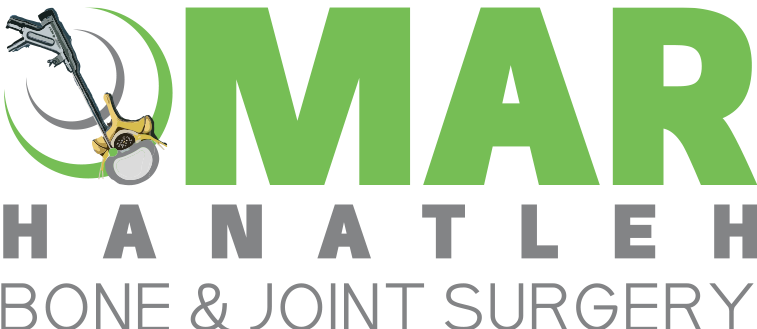- Opposite Arab Center, behind Sheraton Hotel, Khalaf Medical Complex, 3rd floor, 306
FAQs
Frequently Asked Questions (FAQs)
Answers to Common Orthopedic and Spine Surgery Questions
1. What conditions do you treat as an orthopedic and spine surgeon?
I specialize in treating a wide range of orthopedic conditions, including joint pain, fractures, sports injuries, arthritis, and spine disorders. I also perform surgeries such as joint replacements, arthroscopy, and endoscopic spine surgeries for herniated discs and spinal stenosis.
2. What is endoscopic spine surgery, and how does it differ from traditional surgery?
Endoscopic spine surgery is a minimally invasive procedure that uses small incisions and specialized instruments to treat spine conditions. It typically results in less pain, faster recovery, and a shorter hospital stay compared to traditional open spine surgery.
3. When should I consider knee or hip replacement surgery?
You should consider joint replacement surgery if you’re experiencing severe pain, stiffness, or loss of mobility due to arthritis or injury, and if non-surgical treatments like medication, physical therapy, or injections are no longer effective.
4. How long is the recovery period after joint replacement surgery?
Recovery time can vary depending on the individual and the type of surgery. On average, most patients begin walking with assistance within a day or two after surgery, and full recovery may take 6 to 12 weeks with physical therapy.
5. What should I expect during my first consultation?
During your first visit, we’ll review your medical history, conduct a physical exam, and may request imaging tests like X-rays or MRIs. We’ll discuss your symptoms, diagnosis, and the best treatment options tailored to your needs.
6. Are there non-surgical options for treating back pain or joint pain?
Yes, many conditions can be managed non-surgically through physical therapy, medications, joint injections, and lifestyle modifications. Surgery is considered when conservative treatments are no longer effective.
7. What is arthroscopy, and when is it recommended?
Arthroscopy is a minimally invasive procedure used to diagnose and treat joint problems, such as torn cartilage or damaged ligaments. It is often recommended for conditions like knee or shoulder injuries.
8. How do you treat sports-related injuries?
I offer both non-surgical and surgical treatments for sports injuries, including physical therapy, bracing, and, if necessary, arthroscopic or reconstructive surgery for conditions like ACL tears or shoulder dislocations.
9. What precautions should I take after spine surgery?
After spine surgery, it’s important to follow your rehabilitation plan, avoid heavy lifting, bending, or twisting, and attend follow-up appointments to monitor your recovery. Physical therapy will also play a key role in your healing process.
10. How do I schedule an appointment?
You can schedule an appointment by contacting our clinic through phone or email, or by using the online booking form on the website. We’ll do our best to accommodate your preferred date and time.
